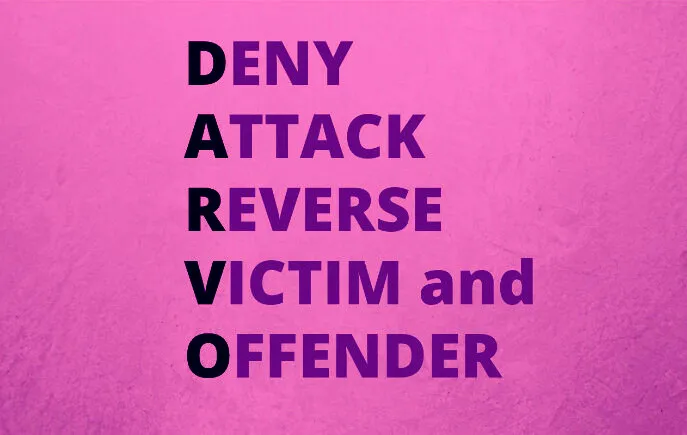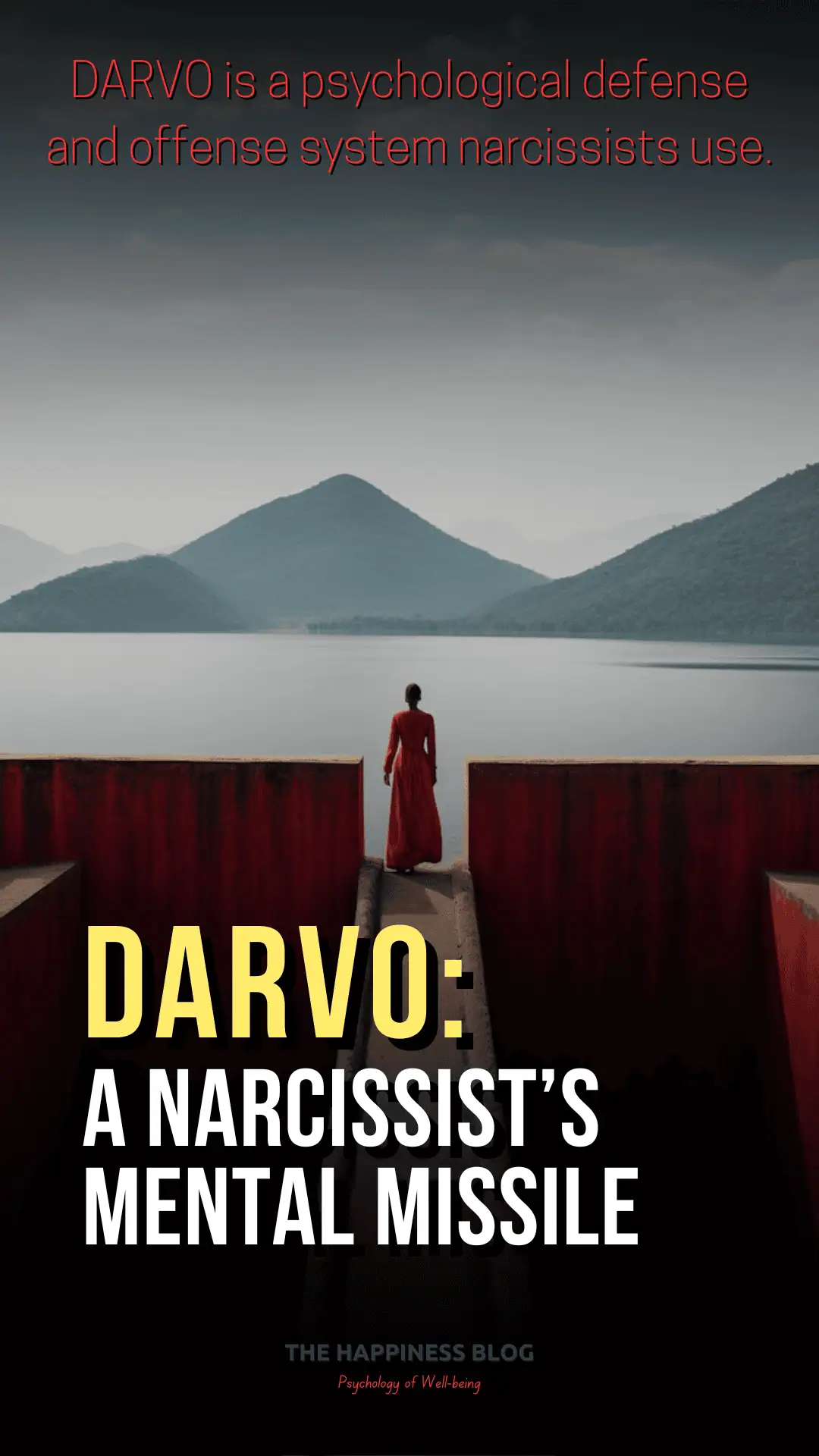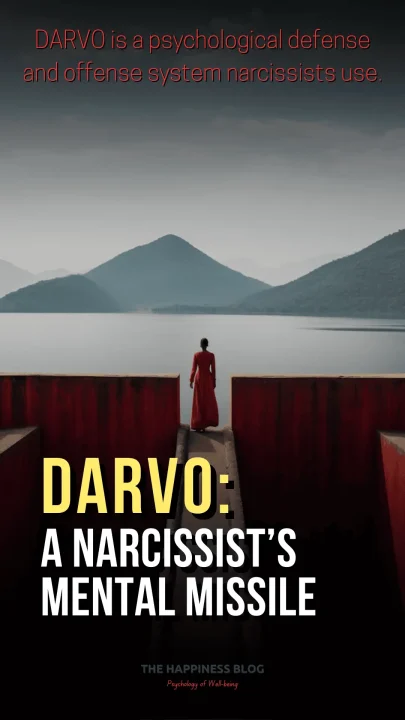Today's Friday • 4 mins read
A narcissist’s favorite way to control their victims and avoid responsibility is to use DARVO.
DARVO stands for Deny, Attack, Reverse Victim and Offender. It is a psychological defense strategy that narcissists and other manipulative people use to avoid responsibility and flip the script on their victims.
You may be surprised to know how they launch this missile!
At first glance, you may think it’s a heated argument or emotional overreaction.
But what works underneath is a series of calculated moves to destabilize your mental clarity and protect their ‘holier-than-thou’ image.
How DARVO Works
1. Deny
The abuser flat-out denies the event ever happened.
Their usual statements are, “You’re making it up,” or “That never happened,” or “You’re too sensitive.”
Denial is their first line of defense. You are thrown back to the point where you ask yourself, “How can this be?”
The goal is to make you, the victim, question your memory, perception, or even sanity.

2. Attack
Once denial isn’t enough, they shift into attack mode.
They discredit the victim. Sometimes subtly, sometimes aggressively.
Accusations fly at you, like “You always twist everything,” or “You’re the one with the problem,” meaning to humiliate, distract, and instill guilt in you.
This attack often ends up with you defending yourself instead of holding your abuser accountable.
3. Reverse Victim and Offender
Finally, they unleash role reversal. The narcissist claims to be the real victim and blames you for being the real offender.
They can say, “I can’t believe you’d accuse me of something like that,” or, “After everything I’ve done for you, this is how you treat me?”
This reversal is not a well-planned design to confuse, isolate, and silence the actual victim.
Why Narcissists Use DARVO
DARVO helps narcissists maintain the carefully crafted, impeccable image they want the world to see.
For them, keeping up appearances and staying in charge matter more than telling the truth, being fair, or making connections.
Admitting fault would threaten their core sense of identity. It would mean confronting their own flaws, and then falling from grace in the eyes of their admirers.
Also, because narcissists often lack empathy, they don’t see their behavior as hurtful.
So, when you point out their mistakes and ask them to take responsibility, they see it as a threat to their dominance. And they respond with psychological warfare using DARVO.

Psychological Impact of DARVO On Victims
The experience of DARVO can feel like emotional whiplash:
- You went to your narcissist seeking clarity or resolution, but left feeling like the guilty party.
- You tried to stand up for yourself, but ended up apologizing to your abuser.
- In the end, you feel unseen, unheard, and invalidated.
Over time, this can lead to self-doubt, anxiety, shame, and a distorted sense of reality, making you more vulnerable to their continued manipulation.
Recognizing DARVO in Real Life
DARVO isn’t limited to romantic relationships. It shows up in families, workplaces, courtrooms, and online spaces.
If every time you confront someone about hurtful behavior, and they respond by accusing you of wrongdoing, it is most probably DARVO at work.
The pattern may look like:
- You express hurt → they accuse you of hurting them.
- You try to leave → they claim you’re abandoning or abusing them.
- You bring up something they did → they accuse you of overreacting.
- Take special note of the intensity or contempt in their voice or gestures.
That is DARVO in action.
How To Protect Yourself From A DARVO
Unless you see DARVO happening in real time, you are likely to get pulled into the spin cycle of guilt, confusion, and self-blame.
- You don’t have to apologize for the mistakes of your offender.
- Being attacked for setting boundaries is a red flag, and it’s not your fault.
- You have the right to your feelings and experiences; no one can tell that your experiences are wrong.
- As soon as the manipulation intensifies, leave the scene, as this is when your abuser senses they’re losing control and likely to explode.
If DARVO is a recurring pattern in your relationship, consult a therapist to find out why you keep rolling into such relationships.
Final Words
DARVO is a toxic blend of denial, blame-shifting, and emotional gaslighting.
It’s not always easy to spot in the moment, especially when it’s coming from someone you love, respect, or depend on.
But once you name the pattern, you take away some of its power. Awareness helps you resist. And that resistance is how you start reclaiming your voice.
• • •
√ Also Read: How To Respond To A Narcissist’s Irrational Anger?
√ Please share this if you found it helpful.
